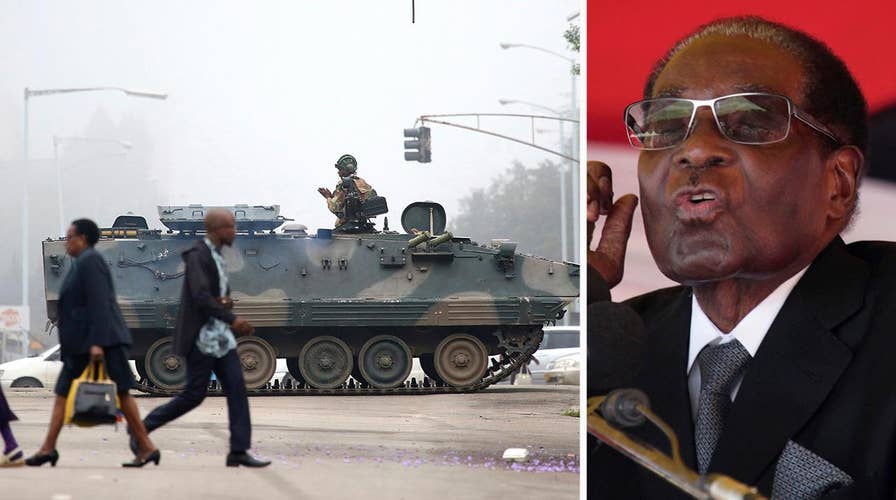Longtime Zimbabwe President Mugabe under house arrest
Americans told to shelter in place amid apparent coup attempt.
A masterful politician, Robert Mugabe outmaneuvered -- or outright crushed -- his opponents to remain seemingly untouchable for much of his nearly four-decade rule in Zimbabwe.
But after a military takeover this week that saw Mugabe and his wife confined to house arrest, the 93-year-old president's iron grip on the southern African nation is likely coming to an abrupt end.
Mugabe rose to power in the late 1970s after leading a successful and ruthless guerrilla campaign that led to the demise of white-ruled Rhodesia, the de facto successor state to former British rule.
MUGABE'S 37-YEAR REIGN IN ZIMBABWE APPEARS OVER AFTER MILITARY TAKE CONTROL
In 1980 he was named prime minister and in 1987 president -- a title he has held for 30 years, despite his advancing age, a growing opposition and the deterioration of a once prosperous economy.
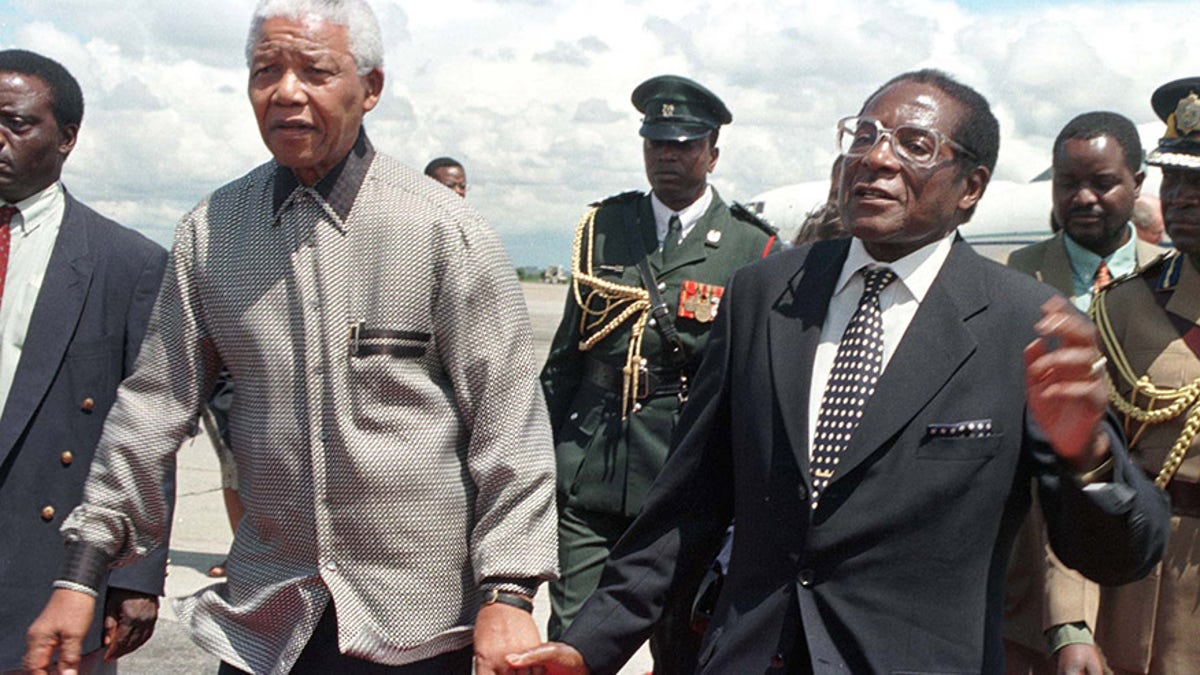
President Robert Mugabe of Zimbabwe, right, holds hands with his South African counterpart Nelson Mandela greeting him on his arrival in the country in 1998. (Reuters)
Many admirers saw Mugabe as Zimbabwe’s Nelson Mandela, as Mugabe cast himself as a voice of pride and defiance in modern Africa.
In the early years of his presidency, the country’s economy was still largely intact and its education system was considered one of the best on the continent. Meanwhile Western aid flowed in, NPR reported.
However, Mugabe's ruthless campaign to consolidate power around him led to the death of an estimated 20,000 people and set the tone for his administration’s way of dealing with potential rivals. Any critics were dismissed as “traitors and sell-outs,” the BBC reported.
Between 1983 and 1987, Mugabe’s army led a rampage in Matabeleland, the stronghold of opposition leader Joshua Nkomo in southern Zimbabwe. It is believed between 10,000 and 20,000 people were killed and it's one of the darkest stains on Mugabe’s rule.
US ‘DEEPLY CONCERNED’ ABOUT POLITICAL SITUATION IN ZIMBABWE
However, the violence didn't end there.
The longer Mugabe remained in power, the more authoritarian he became, said Peter Godwin, a white Zimbabwean who has written several books deeply critical of Mugabe’s rule.
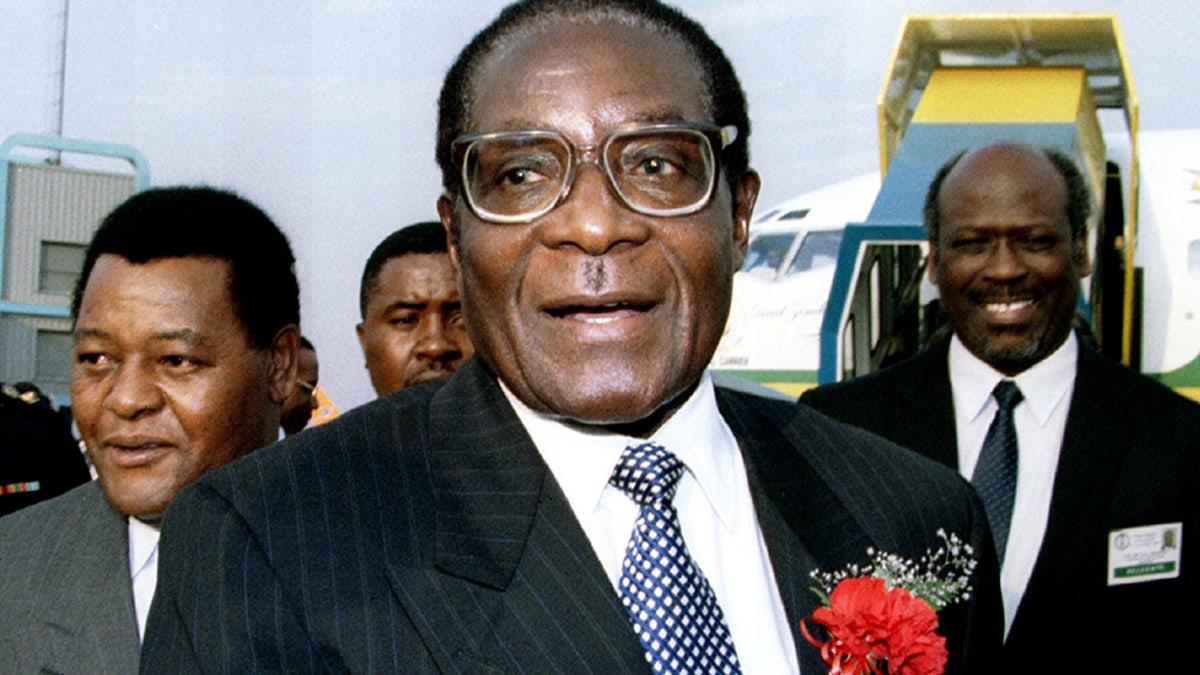
Zimbabwe President Robert Mugabe has been in power since 1980. (Reuters)
“Mugabe has been absolutely consistent,” Godwin told NPR. “From the very beginning, he realized he could get what he wanted through violence.”
Around 2000, violent seizures of thousands of white-owned farms began, causing agricultural production to plunge. A land reform program was supposed to take much of the country’s most fertile land and redistribute it to poor blacks -- but Mugabe instead gave prime farms to ZANU-PF ruling party leaders and loyalists, relatives and cronies.
These actions led western donors to cut off aid, further sending Zimbabwe’s economy into freefall.
That same year, Mugabe suffered the first electoral defeat of his career during a referendum. He continued his tactics of squashing the opposition and he unleashed his personal militia, which used violence and murder as an electoral strategy, the BBC reported.
The patterns continued, and in 2005, the U.S. government called Zimbabwe an “outpost of tyranny,” a term used to characterize governments in certain countries as being totalitarian regimes or dictatorships.
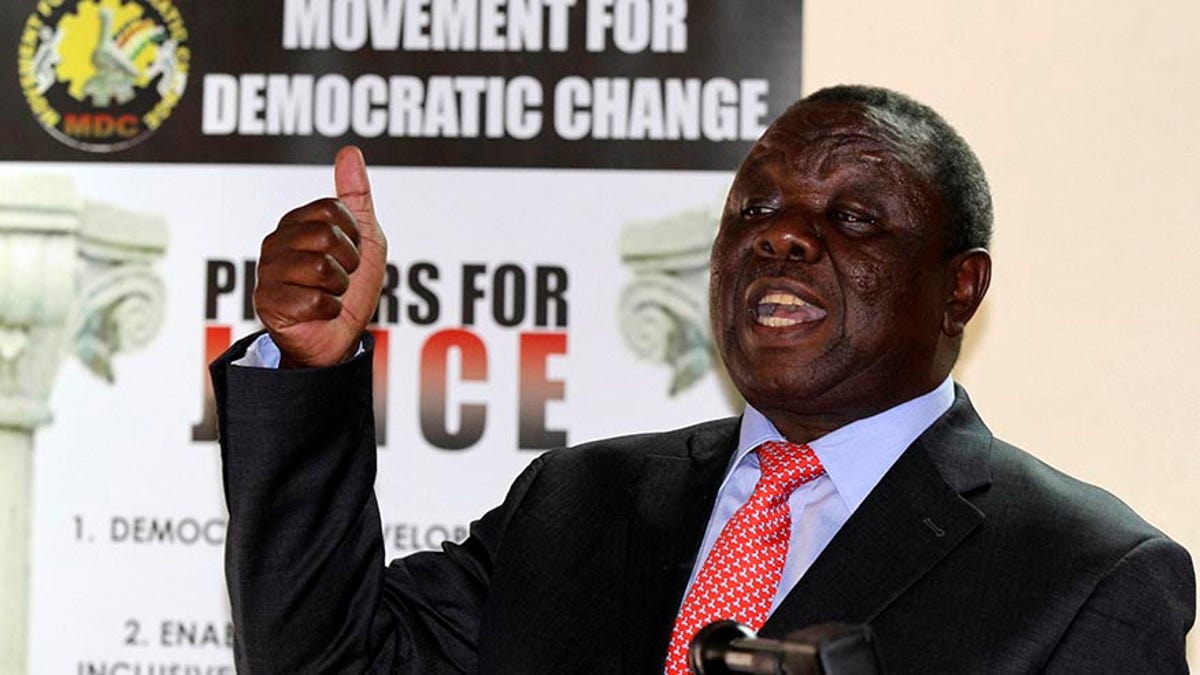
Opposition leader Morgan Tsvangirai has called for Mugabe to step down. (Reuters)
Following a contested and violent 2008 election, which saw Mugabe come in second to opposition candidate Morgan Tsvangirai, the two men agreed to share power. Mugabe remained a president while Tsvangirai was named prime minister.
The unity government ended with a disputed election in 2013 -- one in which Mugabe was re-elected president.
Throughout his nearly four-decade reign, Mugabe, always spry and in impeccably tailored suits, maintained a schedule of events and international travel, despite his age. And he remained pugnacious.
But Mugabe's firing of Vice President Emmerson Mnangagwa earlier this month, in an apparent attempt to pave the way for his wife, Grace Mugabe, seems to have been a serious miscalculation.
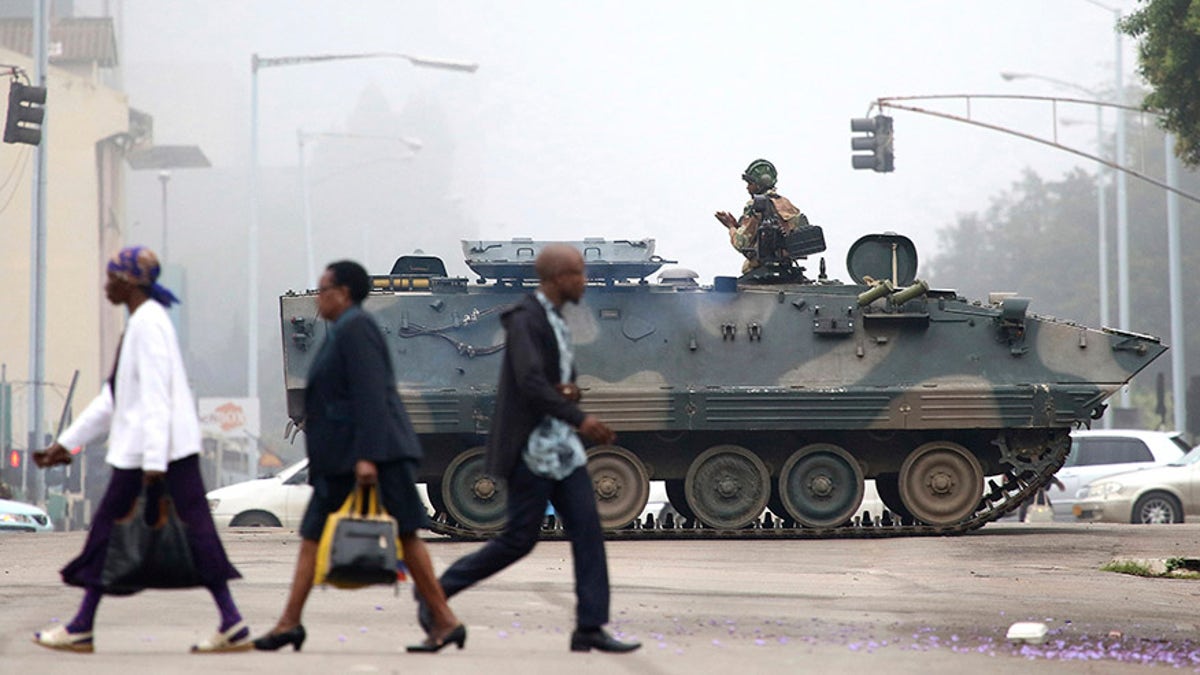
The Zimbabwe army took control of state-run television and put Mugabe under military house arrest. (AP)
Mnangagwa was widely backed by the army. Days after Mnangagwa's ouster, Zimbabwe's army commander criticized instability in the ruling party, saying "counter revolutionaries" were plotting to destroy it.
And after being booted as vice president and fleeing Zimbabwe, Mnangagwa told his countrymen that he "shall return to Zimbabwe to lead you."
Zimbabwe's ruling party is scheduled to hold a key congress in December, in which Grace Mugabe was expected to be selected as vice president. Now the event, if it goes forward, might serve as a chance for Mnangagwa or his allies to consolidate authority over ZANU-PF.
The Associated Press contributed to this report.








































